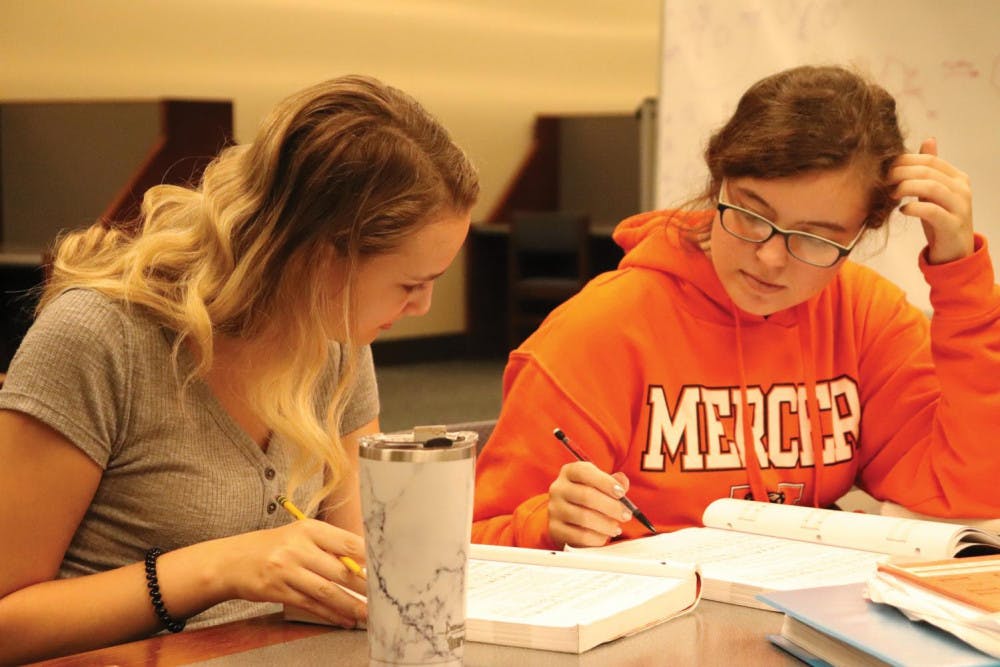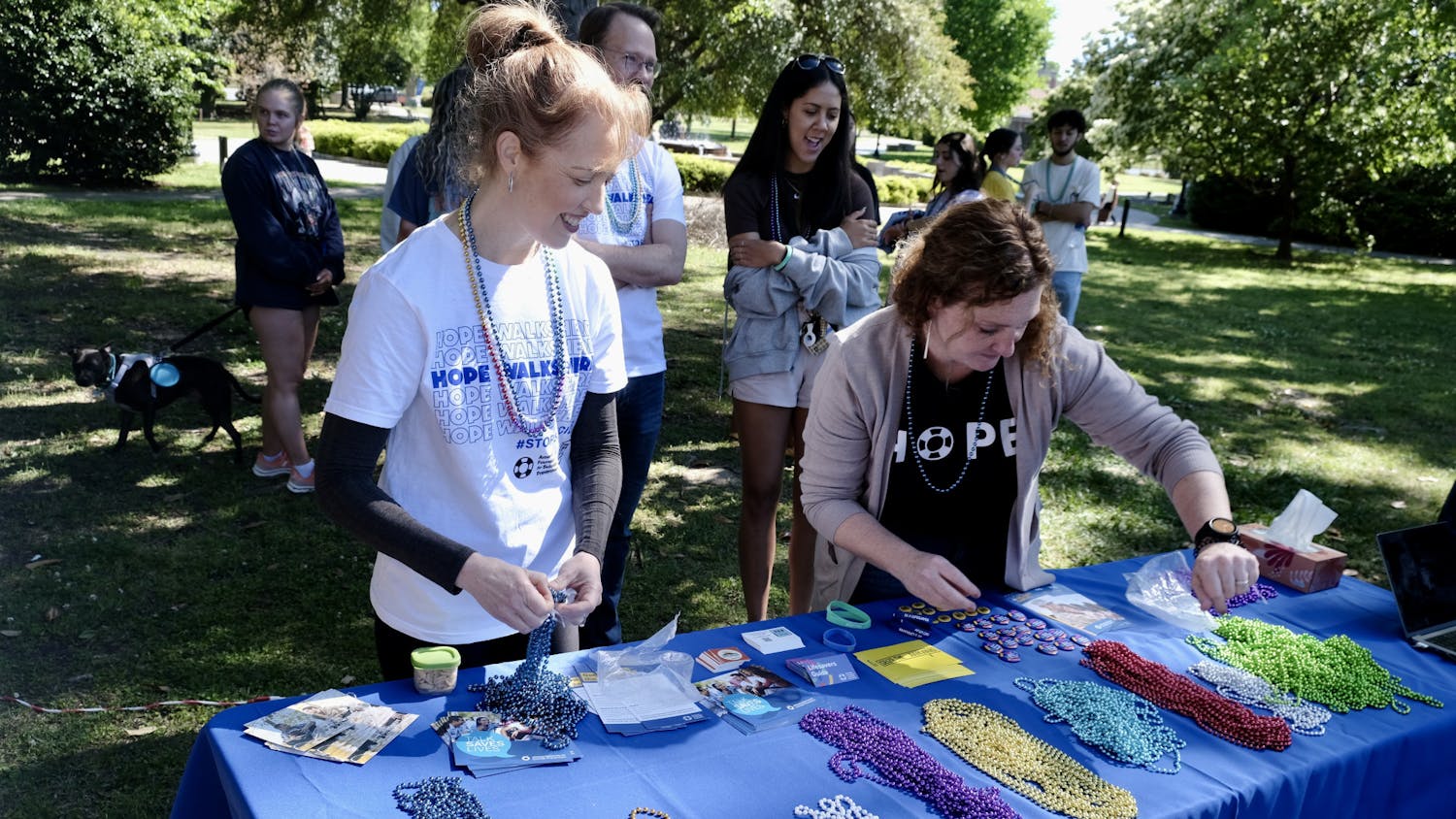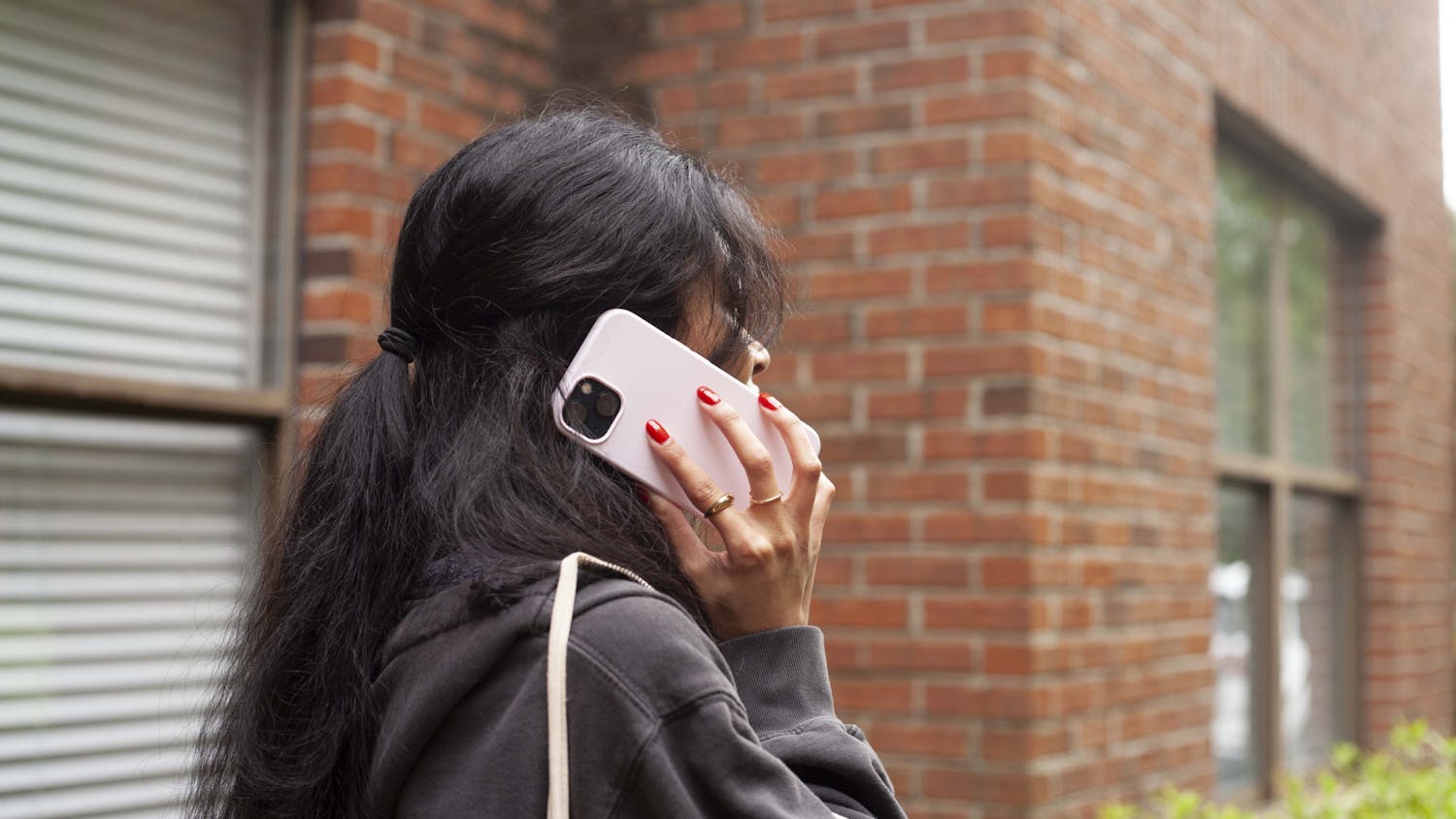
Burnout. We've all been there. Students are well accustomed to the “rise and grind” culture of college, but the need for some individuals to reach perfection or continue working through sustained stress in today’s world has created an even bigger emphasis on a term we hear so frequently.
The term “burnout” has a clinical definition and can affect the overall mental health of an individual, according to Corey Wetzel, assistant director of Counseling and Psychological Services.
With ten years of counseling experience, Wetzel said she has seen how burnout affects both mental and physical health.
“Burnout, professionally, is defined as exhaustion or lack of motivation after prolonged periods of stress,” she said. “Personally, I think it doesn’t get enough attention. It is a word we tend to throw around in society, however, it can be serious. Burnout is usually our mind and body’s way of signaling that something is no longer working for us.”
Tiffany George, a senior global health studies and global development studies double major, said burnout has a particular feeling for her.
“Burnout feels like the act of blowing out a flame, the physical act of letting out a big breath and saying, ‘Enough. I can’t take it anymore. I’m done,’” George said.
Senior neuroscience major Melody Hayman said burnout adds more stress to her everyday life.
“My classes and responsibilities place so much stress on me,” she said. “Normally, I would have no issue handling it all and would flourish with a stressful and busy semester, however, with the added stress of a rushed semester, no breaks and the anxiety of a pandemic, it is almost too much to handle.”
This feeling is not new; College students everywhere are feeling this increase in burnout and fatigue. Only 1.6% of undergraduates reported that they felt no stress in the last 12 months, according to the National College Health Assessment.
“I think burnout is seen significantly in all college settings, not just Mercer. The pressure and expectations can become overwhelming for some college students, and oftentimes, we aren’t taught to recognize the signs and symptoms until much later in life,” Wetzel said.
Other contributing factors to burnout include COVID-19 and the current political climate. The racism seen in America has also created trauma for many students, particularly Black students and students of color. Nationally representative polls and surveys have indicated that 88% of Black Americans believe they experience racism in the U.S. while 78% see racism as being widespread, according to anxiety.org.
“The comorbidity of racism and coronavirus is stressful. It’s scary. It’s exhausting. It’s made me not want to do work because of the influx of headlines and hashtags. At the same time, I’m glad I have school work to ‘distract’ me from the horrors of the real world,” George said. “Why turn on the news anymore when I have a paper to write about poverty in Madagascar? It’s still a horrible thing, but it’s in a different context. All of this makes it difficult to focus on school because you begin to realize that there are more important things than just Mercer.”
Hayman said the news and social media have created a negative space that contributes to the stress students are already feeling.
“I think the political climate, the racism and COVID-19 are just emotionally draining. All this bloodshed and pain inflicted on people who are just trying to live and deserve rights has caused me so much sadness. I’m constantly thinking, ‘Am I doing too little? Should I find time to go to rallies, start a fundraiser, get involved more?’ Whenever I try to do any of those, though, the burnout gets worse, and I end up just focusing on myself to get through the day,” Hayman said.
Wetzel said this is common; individuals often feel apathy or try to compartmentalize their emotions in an effort not to feel the burnout.
“Don’t mistake overworking for good work. Self-care is just as important as your other responsibilities. Think about it like pacing for a long race. Burnout is temporary. Sometimes taking a break or finding other ways to rejuvenate can help us feel motivated again,” Wetzel said.
George said she combats burnout by relying on friends, taking breaks and focusing on her future.
“I’ve noticed that, for me, motivation follows action. So the more I do with my heart, not just for the grade or resume, the more I want to do because I’m taking my time, enjoying what I’m learning, setting goals for the future and visualizing how I’m going to use this information in the future,” George said.
Hayman also said remembering her goals helps her get through difficult times.
“When I am in my worst days, I try to remember what I am fighting for and do something I can control. Having one small win changes the scoreboard back in my favor, and I am able to start to dig myself out of the hole of exhaustion,” Hayman said.
George said she is optimistic for the future.
“2020 has exposed the inequalities in our healthcare and justice systems like crazy, so when I’m reading for my GDS and GHS classes, I’m now reading with relevancy and urgency,” George said.
Hayman said while 2020 has been a very difficult year, she focuses on the “small wins.”
“I think we are all doing the best we can in this upside-down world,” she said. “We must remember that every small win is still a win and we have to take time to celebrate them.”
‘Blowing out a flame’: the danger of burnout on college campuses

Mercer students study in Tarver Library’s 24 hour study floor.
This story won Best of SNO Sept. 30, 2020.




